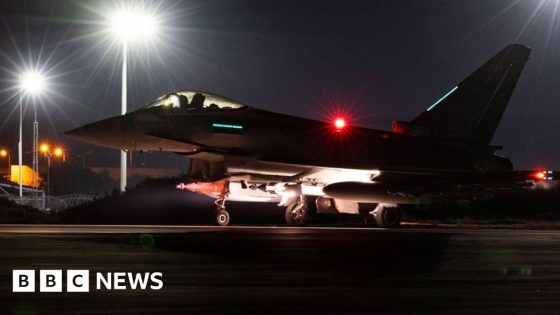Pakistan launched two airstrikes into Afghanistan on Monday morning that killed at least eight people, Afghan officials said, escalating simmering tensions between the two countries.
The pre-dawn strikes were carried out in the Paktika and Khost provinces in eastern Afghanistan around 3 a.m., Afghan officials said. Three children were among those killed, according to Taliban officials, who condemned the strikes as a violation of Afghan territory.
The strikes came amid a surge of attacks by militants in Pakistan following the Taliban’s seizure of power in neighboring Afghanistan. Pakistani officials have blamed militants harbored on Afghan soil and protected by the Taliban administration for the attacks. Taliban officials have denied those claims.
Zabihullah Mujahid, a spokesman for the Taliban administration, said in a statement on X that his country “has a long experience of freedom struggle against the superpowers of the world” and “does not allow anyone to invade its territory.”
“Such incidents can have very bad consequences which will be out of Pakistan’s control,” he added.
The Pakistani action came two days after militants attacked a military post in northwestern Pakistan, near the border with Afghanistan. In a statement released Monday evening, the Pakistani Ministry of Foreign Affairs said that the country had carried out “intelligence-based antiterrorist operations” inside Afghanistan and accused the Taliban administration of aiding militants operating in Pakistan.
Over the past two years, the statement said, the Pakistani government has “repeatedly urged the Afghan authorities to take concrete and effective action to ensure that the Afghan soil is not used as a staging ground for terrorism against Pakistan.”
“However, certain elements among those in power in Afghanistan are actively patronizing T.T.P. and using them as a proxy against Pakistan,” it added, referring to the Pakistani Taliban, also known as the Tehrik-i-Taliban Pakistan, or T.T.P.
The strikes and statement appeared to signal that Pakistan’s newly elected government would take a tough stance with the Taliban administration in Afghanistan over the militant violence that has roared back in Pakistan in recent years. That violence has shattered a relatively calm period since the country’s military carried out a large-scale military operation in 2014 and forced militants across the border into Afghanistan.
After the U.S.-backed government in Afghanistan collapsed in August 2021, the pace of attacks by militants surged in Pakistan, with the assaults themselves becoming bolder. In 2023, the number of attacks by militant groups in Pakistan rose by nearly 20 percent compared with the previous year, according to the Pak Institute for Peace Studies, which monitors extremist violence and is based in Islamabad, the Pakistani capital.
The violence has raised fears of a wider conflict breaking out along the historically contested border, known as the Durand Line, between Afghanistan and Pakistan. It has also fueled growing tensions between the Pakistani authorities and Taliban officials, who deny offering support to militant groups operating in Pakistan, including their ally, the Pakistani Taliban.
Pakistani officials have repeatedly asked the Taliban administration in Afghanistan to rein in the militants. In response, the Taliban authorities have suggested that Pakistan address the militants’ demands and have offered to mediate talks.
The Pakistani authorities’ frustration with the Taliban administration appeared to boil over in September, when the Pakistani government announced a policy aimed at expelling the more than half a million Afghans residing illegally in Pakistan.
The strikes on Monday appeared to send another message to the Taliban administration that Pakistan’s military and newly elected government would take a tougher stance on the militant violence.
The airstrikes sought to “dispel perceptions of a weak Pakistani state,” said Muhammad Amir Rana, head of the Pak Institute for Peace Studies. They also “reflect a unified counterterrorism policy between the new civilian government and the military,” he added.
While sporadic cross-border shelling from Pakistan frequently killed civilians in Afghanistan during the U.S.-led war, the strikes on Monday were the first that Pakistan had launched into Afghanistan in nearly two years. The last strikes, in April 2022, killed at least 45 people in the Khost and Kunar provinces of eastern Afghanistan.
The strikes on Monday were part of the military’s response to the attack on the military post on Saturday, a suicide blast that killed seven members of the Pakistani security forces, according to the Pakistani Ministry of Foreign Affairs. That attack also prompted the military to carry out an operation in the area and kill eight militants, according to a statement on Monday by the Inter-Services Public Relations office, the Pakistani military’s media arm.
Pakistani government officials promised an enduring response to the militants’ attack.
“Pakistan has decided that whoever enters our borders, homes or country to commit terror, we will respond to them strongly, regardless of their identity or country of origin,” President Asif Ali Zardari said while speaking at the funeral prayers for the army officers killed in the attack.
Safiullah Padshah contributed reporting from Kabul; and Salman Masood from Islamabad, Pakistan.
Source Agencies




